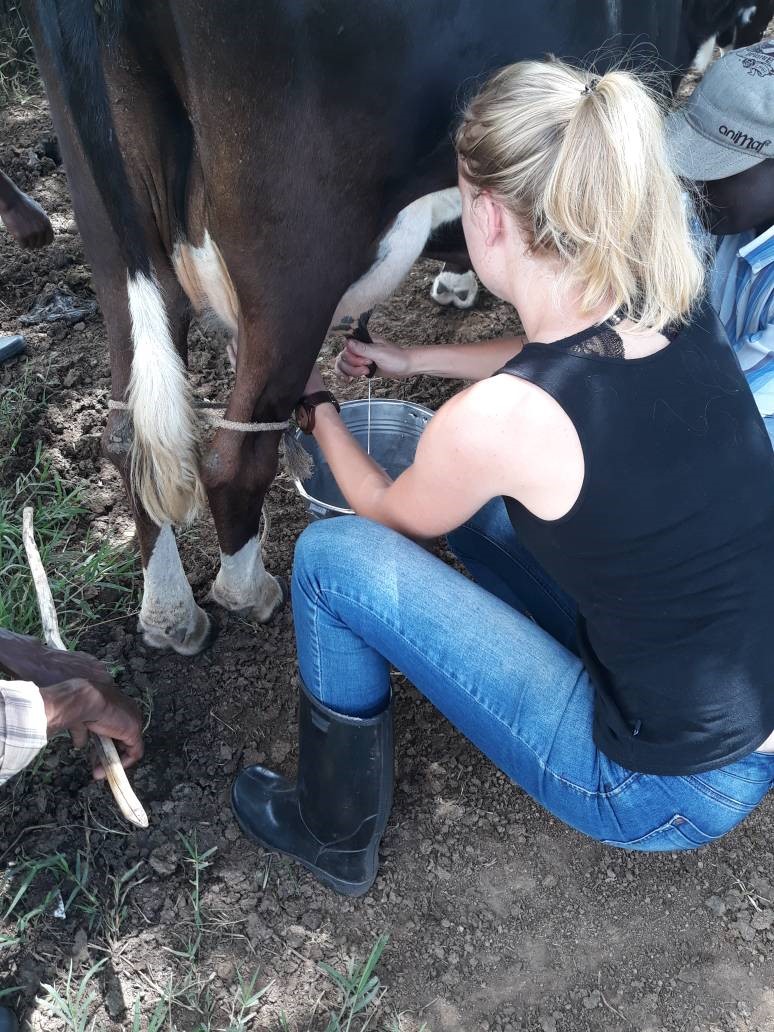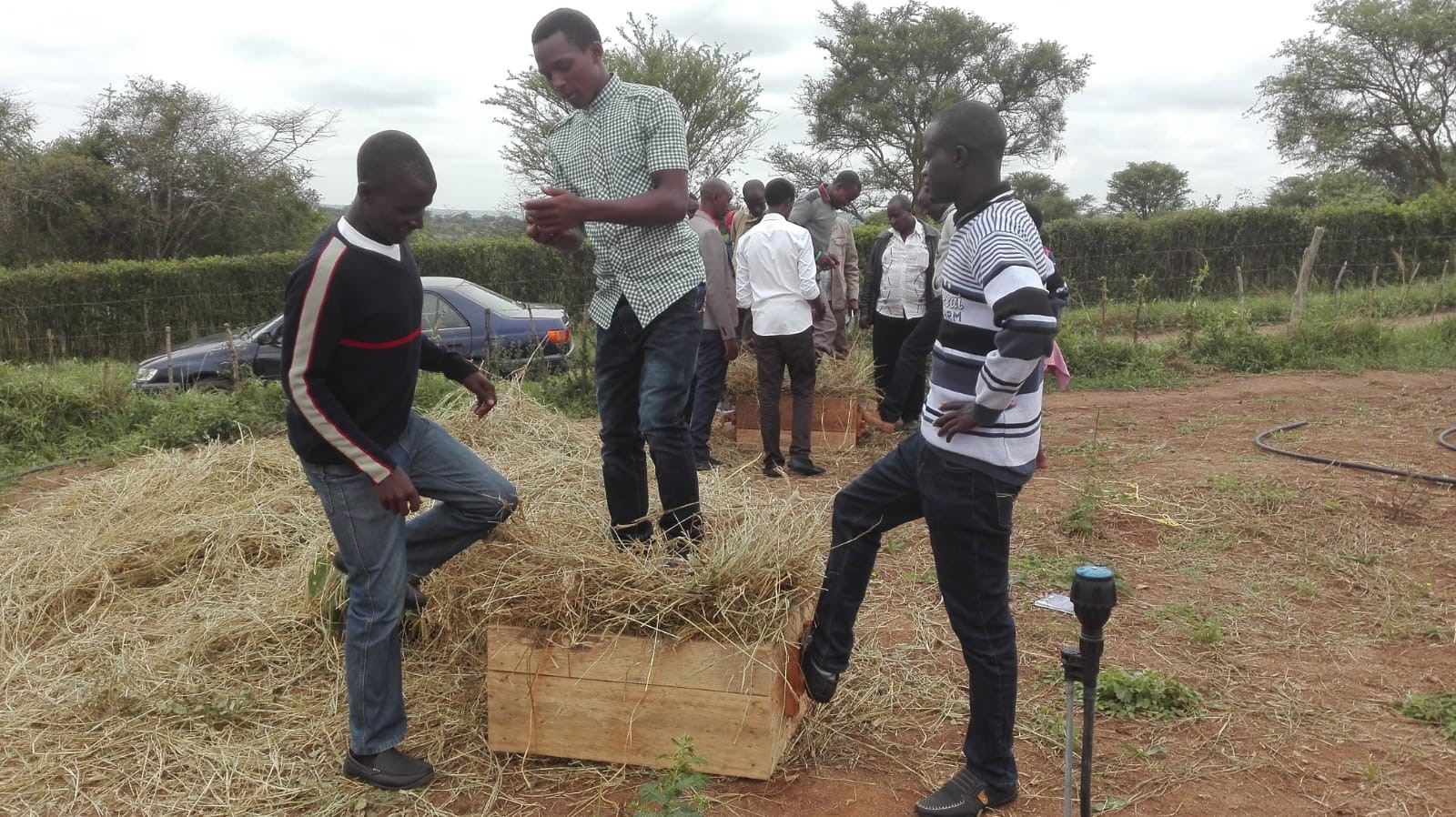An internship with endless possibilities and new horizons
28-05-2018Blog from Hilleke Ketelaar about her internship at Agriterra in Uganda
Four months ago, it was the first time in my life that I set foot on the fertile African soils, in Uganda to be specific. If somebody would have told me at the moment I stepped out of the plane, all the amazing things I would be going to do the next four months, I would had never believed it.
But first, let me introduce myself, my name is Hilleke Ketelaar, a down-to-earth Frisian, currently doing her MSc internship to complete the European Master in Sustainable Animal Nutrition and Feeding. Through Agriterra, I got the amazing opportunity to support dairy farmers in South-Western Uganda to increase milk production by focussing on feeding strategies. A part of this included introducing and implementing a herd record keeping app, which helps farmers to become more business oriented. Moreover, I assisted in assessing the climate smartness of farming practices of farmers benefitting from The Inclusive Dairy Enterprise (TIDE) project in which Agriterra is involved.
Dairy farms in Uganda vs. the Netherlands
The reality at dairy farms in Uganda is completely different than what you will find on Dutch farms. In Uganda, most cows get their nutrients through extensive grazing, however, extensive grazing limits milk production, especially in the dry season. Additionally, majority does not do record keeping, so farmers have no clue what goes in and what goes out, which is key when you want to do dairy farming as a business. On the other hand, many dairy farmers want to improve their productivity, however, they do not have the knowledge or money to do so. Every time I visited a farm, they were very grateful that I, together with the rest of my TIDE colleagues, were helping them to cope with these challenges.

Typical farming practices in Uganda part 1: manually milking the lactating herd
The things that made this internship unforgettable is not the research per se, but everything that happened around it; the people I met, life on the streets, the culture and more. To do my job successfully, I travelled hours on humpy sand roads, drove across swamps, jumped on the back of many motorcycles and even walked kilometres in the hot afternoon sun. Nevertheless, after all these journeys, we always got a warm welcome with some milk tea and homegrown bananas. After this, we started the data collection while the farmers proudly guided us over their farms. One time during data collection I got stuck in the mud in the middle of local long horned Ankole cows, which caused a good laughter among my Ugandan colleagues, the farmer and also myself. Another great experience was that a farmer we visited did not have enough hand milkers for that particular afternoon and asked if I could milk cows, which I can, so I started milking the cows to help them out. All people of the farm gathered around me all surprised that this Dutch student could milk their cows. The latter also happened when I assisted in making hay bales the way they do this in Uganda.
Space for personal and professional development
During the internship, Agriterra gave me a lot of freedom and responsibility which gave me the possibility to explore my own interests, adapt to the local situation and get the best out of the project. In addition, I learned many things, both at a personal and professional level. When you’re in a country like Uganda you need to be able to adapt to the local situations, which means that you cannot follow the procedures you are used to in your home country. Additionally, if you want to change and/or learn something, go out there! Don’t stay seated at your desks, show initiative and you will experience that there is much more possible than you think.

Typical farming practices in Uganda part 2: making hay bales
